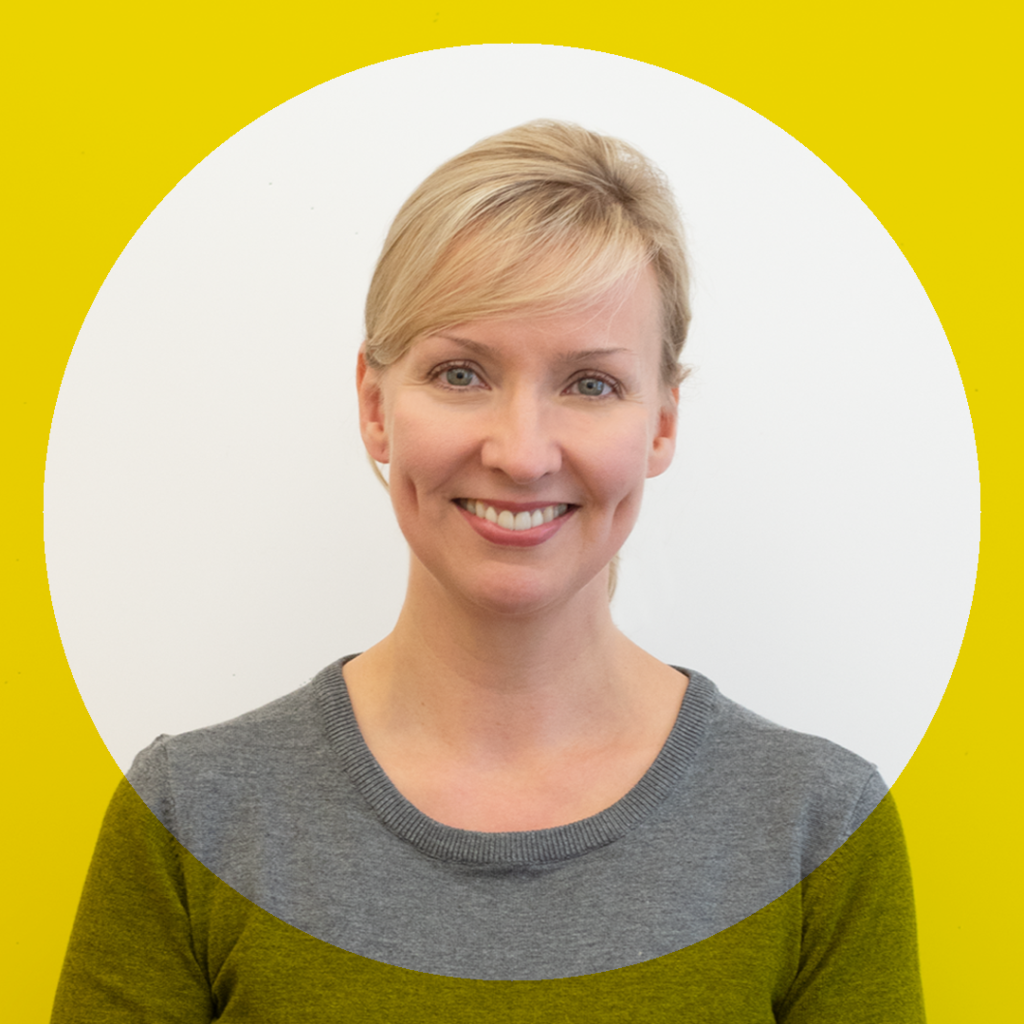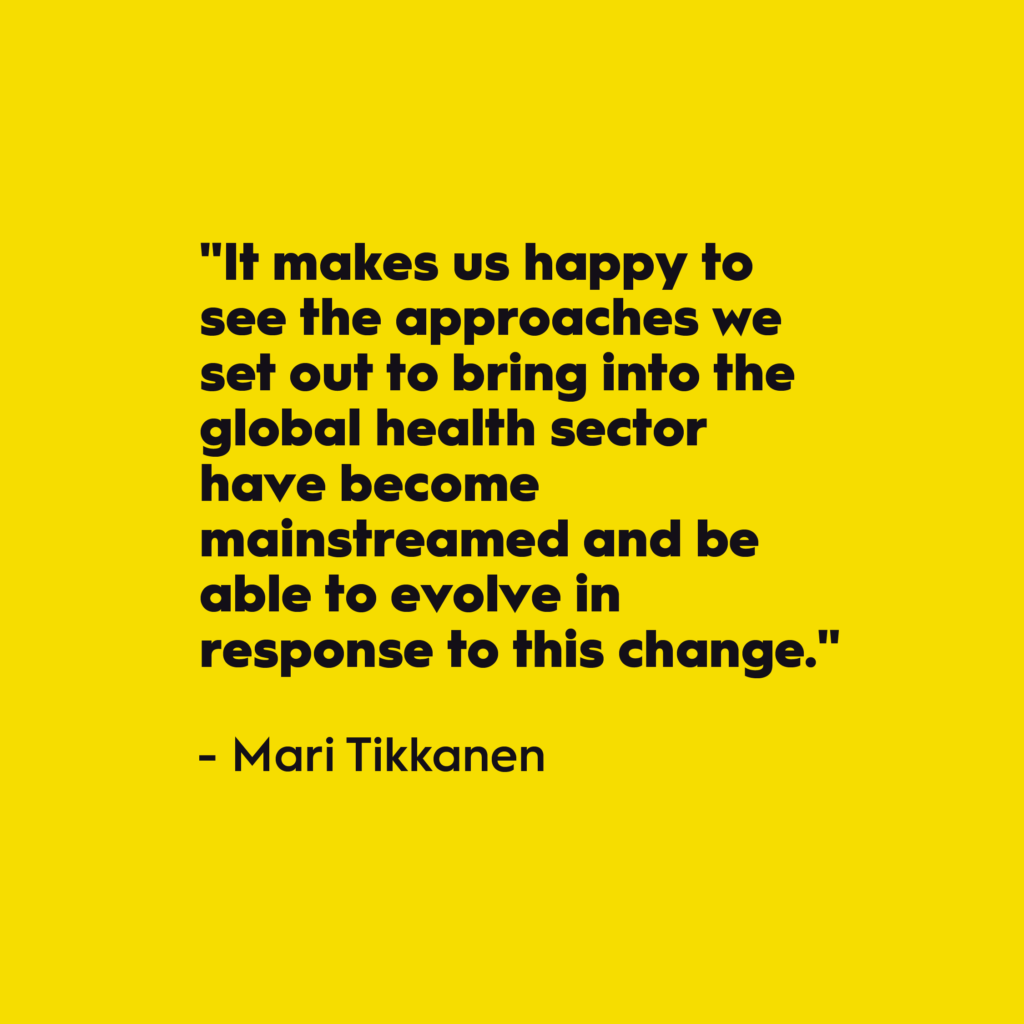Scope Q&A: Mari Tikkanen
Meet Mari Tikkanen, Scope’s Co-Founder and Partnership Director! Mari has 25 years of experience working in the global health and social innovation space. Before co-founding Scope in 2008, she worked for WHO, UNFPA, IPPF, AMREF, and Aurat Foundation, amongst others. Mari is a requested speaker in the social impact field. She serves on several advisory boards, including Design for Health, Missing Billion, and Ashoka. We chatted with Mari about Scope’s system innovation approach and its unique building blocks that help drive systemic change from community to policy level.
You co-founded Scope in 2008. When you look back in time, how has Scope evolved over the years from where you started?
Scope started from two clear needs identified by our co-founder Joe Wright and me over the years of working in global health and sustainable infrastructure development. One, bring in more creative problem-solving and innovation practice into these sectors. Two, support the genuine participation and representation of people affected by services, those delivering services, and those enabling them through the identification of issues, the design of programmes, and their evaluation. These two components are still at the heart of everything we do.
It makes us happy to see the approaches we set out to bring into the global health sector have become mainstreamed and be able to evolve in response to this change. Today, human-centred, participatory design is applied widely in programmes, whereas social media and mobile phones have become standard tools for movement-building and activism. This shift has spurred us to bring in new frontier technologies, such as data analytics, AI, and machine learning to our work. We have also expanded our health portfolio and built up a climate mission, with new programmes in conservation and climate-smart infrastructure development.
Our team has always been spread across continents and, though delayed by the COVID-19 pandemic, we are pleased to finally be able to formalise our presence in India and Kenya. We’ve also evolved in how we deliver our work. Radical collaboration through rapid sprints and interconnected, efficient new modules of work are now the norm. We’ve also invested in developing our M&E and impact measurement, creating indicators and a methodology to learn, improve on, and capture system innovation projects and company-wide impact. These developments are important to ensure we continue to serve communities in the best possible way.
What is system innovation, and how does it come together at Scope?
Through our ‘system innovation as a service’ approach, we deliver projects across three interconnected programmes: strategic engagement, social innovation, and organisational change. The strategic engagement work helps create enabling environments by supporting community mobilisation, demand generation, and behaviour and policy change. Within diverse ecosystems, we facilitate social innovation through exploration, co-design, testing, and rolling out new service and system interventions. We also help embed new strategies and skills within the community, organisational, and governmental structures through learning programmes and change management.
These programmes give us a unique set of building blocks that help drive systemic change from community to policy level. They allow us to construct complementary, scalable portfolios of regionally and thematically interconnected projects and products that help shift the needle on national and global goals.
Scope Sprints are a fast and focused way of addressing programmatic challenges. What is the advantage of engaging in the sprint process?
We have brought together our decade-long experience into Scope Sprints. The sprints are 4-week modules that help teams resolve specific programme issues efficiently and without compromising on rigour. We use tried and tested innovation techniques and our deep technical expertise to kick-start a rapid collaborative process.
Our discovery, co-design, and demand generation modules lead to clear, actionable outcomes. The outcomes can, for instance, include nuanced user requirements and new programme directions, co-designed, audience-validated intervention improvements, or community influencer-led social mobilisation strategies. The sprints are geared to support pragmatic decision-making, build confidence within teams to execute, and spur experimentation in new ways of collaborating across areas of expertise and life experiences. We are excited to get to roll them out with our impact and community partners!
Back to news
